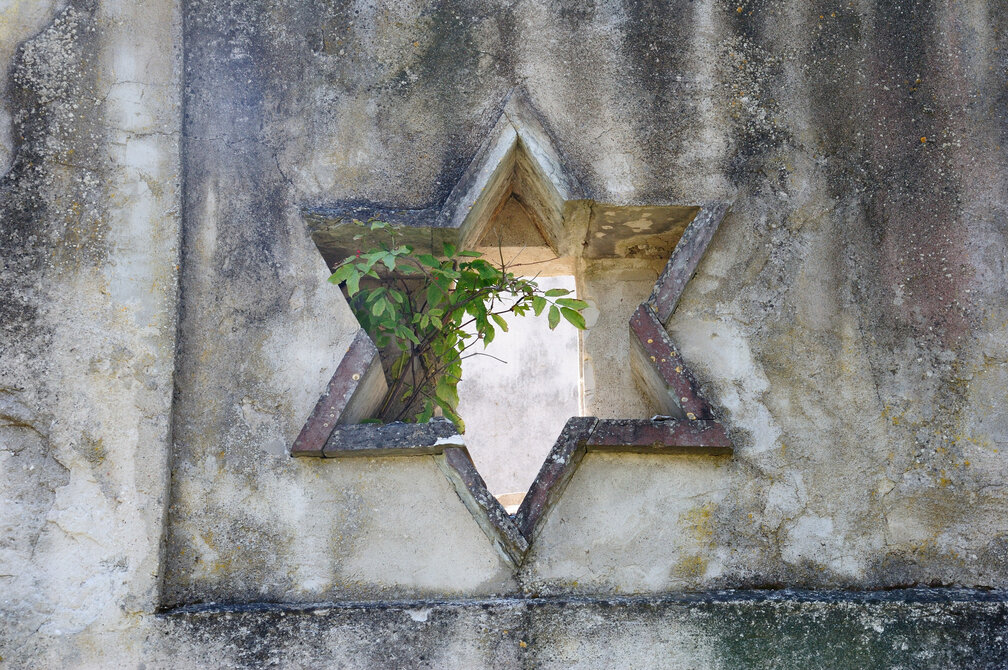In Jewish Philanthropy, a Case Study of How a Crisis Can Expand Communal Giving
/Nina Alizada/SHUTTERSTOCK
The turbulent times brought on by COVID-19 raise fateful questions for all of society, and especially for nonprofits and community-building organizations. These institutions are met with an outburst of engagement, the rise of new initiatives, and the formation of emergency appeals that have historically formed their backbone.
America’s Jewish community—an inherently social entity in the age of social distancing—serves as an instructive test case of how emergency philanthropy can enable a rise in the activities, goals and reach of communal philanthropy and social justice philanthropy.
With its once-bustling synagogues and schools shuttered, the official Jewish communal response to coronavirus has been extensive and well-aligned with the tradition of community engagement amongst American Jews in times of need. Jewish communal philanthropy is made up of a rich plethora of public, family and corporate foundations that engage in granting and re-granting funds toward the needs of community members.
Focused primarily on supporting Jewish needs, this faith community’s institutions are also involved in emergency relief in their local communities. The Jewish Federation system—composed of 146 branches and over 300 network communities that raise and distribute more than $3 billion annually, and through planned giving and endowment programs to support social welfare, social services and educational needs—has developed a short-term relief funding mechanism for COVID-19 and is working on mid-term responses to the pandemic that will eventually reposition the local and regional federation branches as vital communal organizations the day after any crisis.
Major Jewish organizations led by the Jewish Federations of North America, the individual federations’ umbrella body, formed an emergency coalition as a collective response to coronavirus by supporting more than 1,000 member organizations. In New York (pledging over $24 million), Hartford, Denver, Boston, Baltimore, Chicago, San Francisco and other cities, Jewish Federations have formed relief funds designated to meet the acute needs of communal institutions and their constituents. Family and corporate foundations have pledged substantial grants to support these funds, as well as to direct new grants toward Jewish and non-Jewish communities. Recently, a $91 million relief fund for Jewish nonprofits struggling with the economic fallout of COVID-19 was announced by the Jewish Community Response and Impact Fund (JCRIF). JCRIF is a consortium of seven Jewish family foundations coordinated by the Jewish Federations of North America. Such local and national responses exemplify the adept use of the collective resources of time, planning and funds for the purpose of coordinated efforts aimed at assisting the Jewish community and supporting its recovery the day after.
The U.S. Jewish community’s initiatives are mirrored in the secular world of community philanthropy, as evidenced by research from the Milken Institute, which showcases how the United Way and hundreds of community foundations have enhanced their overall fundraising and programming by focusing on social, health and economic relief.
These energetic efforts come during an era when Jewish communal institutions are often accused of losing sight of their community’s raison d'être. They are perceived as excluding diverse groups of the Jewish community from their leadership and decision-making circles, and as having inefficient grantmaking mechanisms. Yet their relief efforts in recent weeks have expanded their collaborative efforts with stakeholders from within and outside the Jewish community. Rather than prioritizing giving within the community over external needs, Jewish organizations are not imposing guidelines, delineating boundaries, or excluding non-Jewish partners in their response to coronavirus. Grants made by Jewish Community Federations in Chicago, New Jersey, Detroit, New Orleans and others to support frontline medical workers reflect their inclusive approach to serving the needs of those most affected by COVID19, one that transcends traditional community boundaries.
What explains this shift? COVID-19 has provoked the imagined Jewish collective identity, and Jewish communal philanthropy is regenerating its central place as a communal facilitator and hub of knowledge. This is not surprising, nor is it a new trend in Jewish communal giving. In 1967, Jewish communal philanthropy raised $100 million within 30 days to support Israeli society during the Six-Day War. In 1973, Jewish institutions combined to raise $200 million within 10 days to provide for the needs of Israelis amidst their war with Egypt.
Subsequent emergencies and crises in the U.S. and Israel have confirmed that these institutions thrive during catastrophes; they also tend to rebuild their centrality and fundraising strategies during these periods. Military operations and wars in Israel since the late 1940s, the immigration of Russian-speaking Jews to the U.S. and Israel in the early 1990s, and natural disasters such as Hurricane Katrina in 2005 and Hurricane Sandy in 2012 all resulted in increased efforts to reclaim the necessity of Jewish philanthropy. Now, American Jewry is fine-tuning its communal operations and structures in response to the invisible enemy of COVID-19, and the resulting improvements will endure.
Emergency philanthropy also provides an opportunity for communal philanthropy to challenge existing public perceptions. This opportunity is presented against the backdrop of the decline of Jewish communal philanthropy in recent decades as a result of an aging and shrinking donor base, as well as growing criticism over grantmaking processes. Today’s vulnerability presents the chance for Jewish communal philanthropy to reclaim its centrality as a vital philanthropic mechanism.
As this crisis evolves, communal philanthropy will thrive. Most importantly, an emergency opens civil leadership for all. It expands civic participation to all sectors of a community, enhances social networks and builds members’ trust that their institutions will deliver effective solutions. If there is any silver lining to these fraught times, this is it.
Jay Ruderman is President of the Ruderman Family Foundation. Dr. Hanna Shaul Bar Nissim, Deputy Director of the Ruderman Family Foundation focuses on documenting and analyzing the activities of foundations and community philanthropies.









